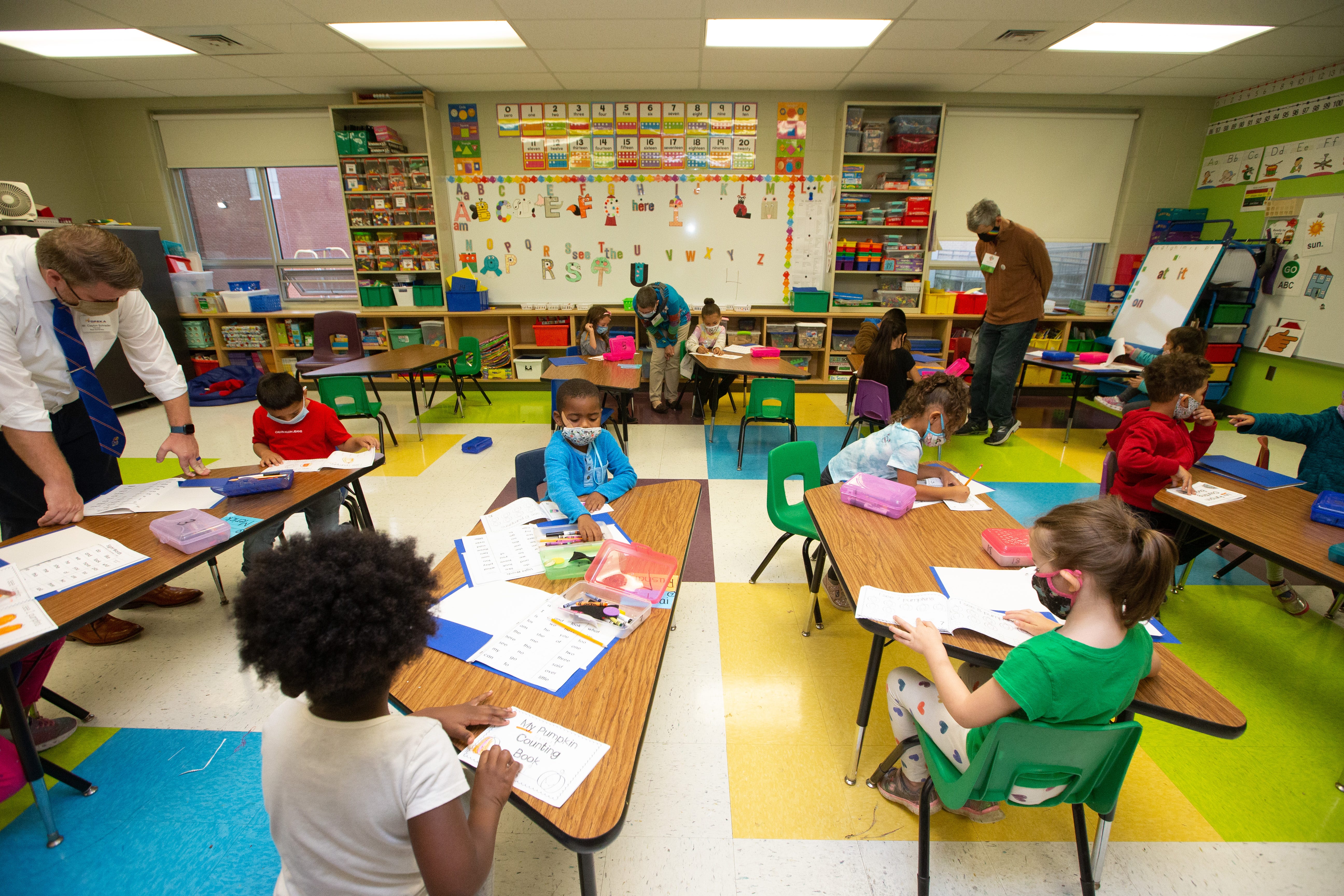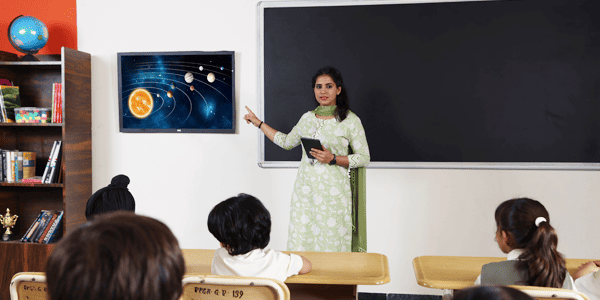Tailored Primary Science Tuition Singapore for Your Child’s Success
Tailored Primary Science Tuition Singapore for Your Child’s Success
Blog Article
Exploring the Different Teaching Strategies in Primary Science Education Today
Inquiry-based knowing, hands-on experiments, and the assimilation of innovation are redefining how teachers involve young minds. In addition, collective approaches and differentiated direction are being used to cater to the varied demands of trainees, boosting both engagement and understanding.
Inquiry-Based Understanding
Inquiry-Based Learning (IBL) is a pedagogical technique that encourages trainees to explore clinical principles through wondering about, examination, and hands-on experimentation. This technique stresses the function of students as active individuals in their understanding, promoting important thinking and analytical skills. By involving with real-world concerns, pupils become inspired and curious, which boosts their understanding of clinical principles.
In IBL, educators act as facilitators, guiding trainees as they browse their queries rather than providing info straight. This student-centered strategy allows for differentiation, fitting different finding out rates and designs. Trainees establish abilities in creating theories, making experiments, and analyzing information, which are essential for scientific literacy.
In addition, IBL promotes partnership among students, encouraging them to share ideas and findings. This collective query promotes social skills and a feeling of community within the classroom. Additionally, the process of inquiry urges strength, as trainees discover to embrace failure as a tipping stone toward understanding.
Hands-On Experiments
Hands-on experiments are an important component of reliable scientific research education, matching the principles of inquiry-based understanding. These experiments enable students to engage straight with clinical ideas, promoting a much deeper understanding via experiential discovering. By manipulating materials and observing end results, young students can realize abstract concepts in concrete means.
Such activities promote vital reasoning and analytic abilities, as trainees assume end results, conduct experiments, and assess outcomes. This process encourages them to ask concerns, improve their understanding, and create a clinical mindset. Hands-on experiments can be tailored to varied knowing styles, making certain that all students have the chance to involve meaningfully with the web content.
Furthermore, hands-on experiments usually encourage collaboration among peers, advertising synergy and communication skills. Operating in teams makes it possible for pupils to share ideas, go over searchings for, and pick up from each other, which improves their general instructional experience.
Including hands-on experiments right into the primary science curriculum not just enriches the discovering atmosphere however likewise cultivates a lifelong rate of interest in science. By actively joining their education, trainees are a lot more likely to establish an enthusiasm for clinical questions that expands beyond the classroom.

Technology Integration
Integrating innovation right into main science education and learning has actually ended up being progressively important in cultivating pupil involvement and boosting discovering end results. The usage of electronic devices, such as interactive simulations, online labs, and educational software, provides pupils with possibilities to discover clinical ideas in innovative ways. These sources help with a deeper understanding of intricate subjects by allowing learners to envision and control variables that would be impractical in a standard classroom setting.
In addition, innovation integration urges individualized finding out experiences. Students can proceed at their very own rate, taking another look at difficult ideas through multimedia resources, which satisfy various learning styles. This flexibility not only supports specific growth yet likewise grows a sense of autonomy in learners.
Furthermore, innovation offers as a bridge to real-world scientific research, connecting pupils with current research study and specialist contributions. Accessibility to clinical journals and on the internet data sources widens students' viewpoints on clinical questions and fosters essential believing abilities.
Collaborative Discovering
Joint knowing plays a crucial duty in main scientific research education by fostering team effort and communication skills amongst students. This method motivates learners to work with each other, share expertise, and engage in analytical, which boosts their understanding of clinical ideas. By joining team activities, trainees find out to articulate their ideas, listen to varied viewpoints, and bargain solutions, all of which are vital skills in both academic and real-world contexts.

Study suggests that collective knowing can cause boosted inspiration and interaction in scientific research topics, as pupils discover enjoyment in common experiences (primary science tuition Singapore). In addition, this strategy prepares students for future joint endeavors, equipping them with the skills needed for reliable synergy in greater education and expert atmospheres. Inevitably, accepting collaborative understanding in primary science education and learning can substantially improve the understanding experience and promote visite site a much deeper understanding of scientific query
Distinguished Direction

Distinguished guideline can manifest in various means, such as differing the content, processes, or products of knowing. Educators might make use of tiered jobs that give differing levels of intricacy, enabling trainees to work at their particular preparedness degrees. In addition, adaptable organizing strategies can assist in collaboration amongst trainees with different abilities, cultivating peer knowing.
Evaluation plays a critical role in this approach, as it educates direction and assists instructors recognize each trainee's distinct demands. Formative evaluations, such as tests and monitorings, can assist instructors in changing their approaches to improve finding out outcomes. primary science tuition Singapore. Eventually, by implementing set apart instruction in primary scientific research education, educators can grow a much more fair and efficient understanding setting, empowering all students to reach their full potential in recognizing clinical sensations
Conclusion
In summary, the varied teaching approaches in primary science education and learning, including inquiry-based learning, hands-on experiments, innovation integration, joint learning, and separated guideline, collectively add to a more reliable knowing atmosphere. These approaches Resources advertise essential thinking, problem-solving abilities, and a much deeper understanding of scientific concepts. By implementing these methods, instructors can create appealing and helpful classrooms that deal with the diverse needs of pupils, ultimately promoting a lifelong passion helpful site in scientific research and enhancing scholastic accomplishment.
Inquiry-Based Discovering (IBL) is a pedagogical strategy that encourages students to explore scientific ideas with wondering about, investigation, and hands-on trial and error.Joint discovering plays an important function in primary scientific research education by promoting team effort and interaction skills among pupils.Research indicates that collaborative knowing can lead to increased inspiration and interaction in scientific research topics, as trainees locate pleasure in common experiences.In promoting an inclusive discovering atmosphere, distinguished guideline arises as a vital method to fit the varied requirements and capacities of students in key scientific research education. Inevitably, by implementing differentiated instruction in main scientific research education, educators can grow a more fair and effective learning atmosphere, equipping all pupils to reach their full capacity in understanding clinical phenomena.
Report this page